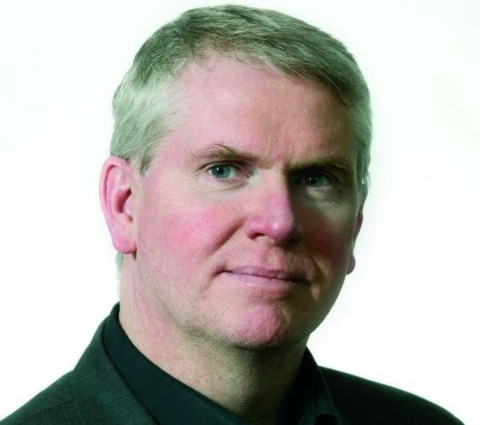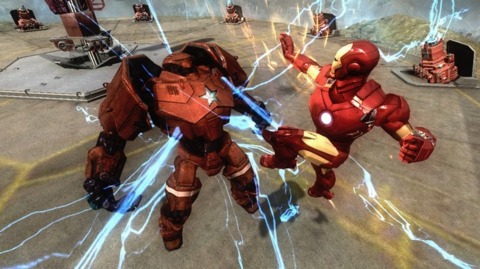Sega West CEO explains reorganization
Mike Hayes details impact of restructuring, Iron Man 2 studio's closure; promises more original downloadable IP, weighs in on Saturn, Dreamcast era rereleases.
Yesterday, Sega confirmed the layoffs of more than 70 employees in its North American and European offices and announced a restructuring that will see a new digital division working out of San Francisco. Today, Sega West president and CEO Mike Hayes spoke with GameSpot to better explain exactly what impact the restructuring will have on the publisher.

In addition to clarifying the new digital division's role in the company, Hayes touched on a number of other topics, including this month's closure of the studio formerly known as Secret Level, developers of the upcoming Iron Man 2 game. The executive also shed a bit of light on the digital division's battle plans for the future, promising the publisher would finally branch out beyond the rereleases of console and arcade hits that make up the bulk of its downloadable catalog today. Hayes also confirmed the publisher is currently considering revisiting a heretofore neglected chunk of Sega history--the Saturn and Dreamcast era.
GameSpot: Will Sega have any internal retail development being done in the US going forward?
Mike Hayes: Basically, there was the one studio, [Iron Man 2 developer] Sega San Francisco Studios, which we announced the closure of. However, the intention is for us to continue to increase our business in America, and to do that, we need more development projects. It's just likely that for the time being, all of those are going to be handled on an external basis. So we are still looking for projects with external partners that we can hopefully sign up for the future on whatever platform. The closure of the studio and putting the administrative center of traditional products in London in no way reflects how key North America is to our traditional business going forward.
GS: Golden Axe: Beast Rider didn't set the world on fire, but I was under the impression Iron Man did well and the sequel had significant expectations on it. Why close the studio now and pull back from that?

MH: It was simply a case of what was the project we could find next for the studio, and that was where we stalled. Despite several months of good efforts in trying to find the next project, we couldn't actually agree and close on that idea. So it's not a reflection on Iron Man 2 because we've got great expectations that if it does as well as Iron Man 1, it's going to be a big hit. And the job they did on that was very good and very solid. The issue was more about what was the next project, and that's what we couldn't in the end agree upon.
We did the same in Europe three years ago with the Sega Racing Studio. The quality of Sega Rally was very high. The issue was in the driving genre. What is it we could have done next? And that was the problem. We couldn't solve that, and that was the reason for the closure.
GS: Will this affect the amount of external partnerships that you have in the US, or will they continue as they have?
MH: Our goal is to increase, quite frankly. We need more external projects to further build the market share that we've got in the US. We've made great strides since we reinvented ourselves as a multiplatform publisher. Our marketing share has grown steadily the past five years. Our intention is for that to continue, so we'll be quite actively and aggressively looking around the country to see what partnerships we can make with developers in the United States and Canada, as well as Europe, of course.
GS: Will Sega's European studios and partners handle just as much digital development as they were before, or will it be taken off their plate and put in San Francisco?
MH: The administration and the leadership will come from [San Francisco], but we're totally agnostic in terms of where the developer is. We want to make sure we get the right product at the right quality and the right price. Whether that's in Europe or Asia or the Americas, it really doesn't matter to us.

GS: This is separate from downloadable content, correct? Those add-ons would just be handled by whatever studio did the original products?
MH: Absolutely right. With digital and traditional, there's a huge amount of gray area. They're certainly not mutually exclusive. There aren't these blocks where nobody talks to everybody else. That's part of what we need to make sure we're effective. So, yes, the downloadable content for packaged goods will be dealt with by those studios. But the expertise in the digital group will input and advise us on how best to develop that.
GS: Sega's digital distribution strategy to date seems to be using it as a way to get value from the catalog. With the exception of Happy Tree Friends, all of your titles are rereleases of arcade or console hits. Should we expect more original titles like Sonic 4, or more original intellectual properties in the future?
MH: You've absolutely hit the nail on the head with that. We've had a good two to three years in the digital arena harvesting very much the existing IP. Some of it has been old platform games from the Genesis, but we've also reengineered very successfully. I think Super Monkey Ball is probably one of the most successful on the iPhone and now iPad. But you're absolutely right. The increased focus and need for an increased size team in San Francisco couples up with an increase in development budget, and part of that budget goes to develop new original IP that is more specific for the digital platforms. Through the summer and into the fall, we'll be making announcements on what those projects are. Several are in development already.
GS: You mentioned the Genesis and Super Monkey Ball. For all the retro and catalog titles you've rereleased, those two things bookend a dead period of the Saturn and Dreamcast where a lot of those games just aren't being brought back or made available to people. Is that something you're looking at changing?
MH: It's certainly something we're looking at, yes. But at the moment we've got no solid plans in terms of release.
Got a news tip or want to contact us directly? Email news@gamespot.com
Join the conversation